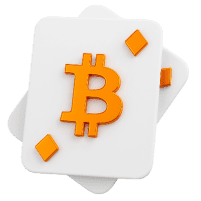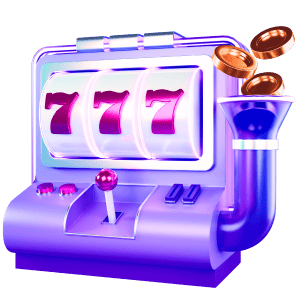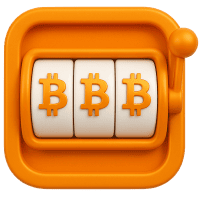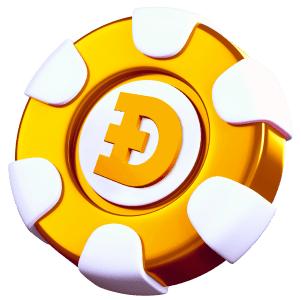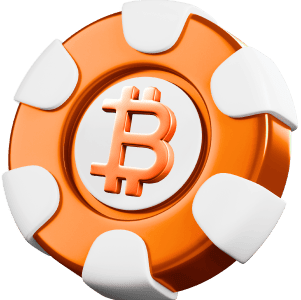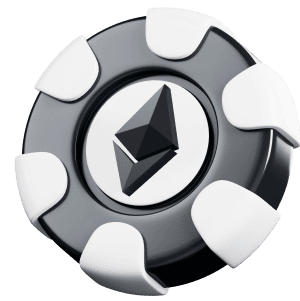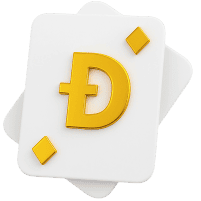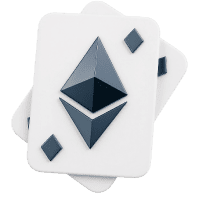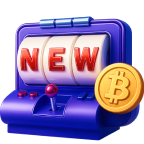Over the past few years, cryptocurrencies have gained mass appeal among both retail and professional users. In this dynamic ecosystem, Trust Wallet has emerged as one of the most widely used applications. If you’ve ever wondered what is Trust Wallet or googled “what is Trust Wallet app”, you are not alone. Designed to manage multiple cryptocurrencies in one place, Trust Wallet offers a decentralized experience that allows users complete control over their assets. With an interface that works seamlessly on both mobile and through a responsive wallet web version, this digital wallet not only supports everyday transactions but also empowers users to explore decentralized applications (dApps), participate in staking, and monitor their portfolio with a high level of security.
About Trust Wallet
Security is paramount for any digital wallet, and Trust Wallet has earned accolades as a Trust Wallet safe solution. At its core, it is engineered to provide an intuitive experience while maintaining a strong focus on usability and security, making it one of the top trust crypto and bitcoin wallet options available today.
Pros and Cons
Every wallet has its strengths and weaknesses. Here’s a brief summary:
Pros
- Intuitive User Experience: The app’s easy onboarding and clear design make it accessible for beginners.
- Robust Security: Acting as a non-custodial wallet, it is frequently touted as a Trust Wallet safe and reliable method for asset storage.
- Multi-Network Support: It offers support for more than 40 blockchains, ensuring that it’s not just a trust bitcoin wallet but also serves as a trust bitcoin and crypto wallet.
- Advanced Features: Integrated dApps, staking, and coin swapping offer a comprehensive ecosystem.
- Decentralized Nature: It embraces true decentralization, fueling debates such as is Trust Wallet decentralized.
Cons
- KYC and Regulation: Some users may find the absence or optional nature of Trust Wallet KYC features as a hurdle in regulated markets.
- Transaction Fees: While not charging its own fees, network transaction fees can be unpredictable.
- Learning Curve: New users might initially be overwhelmed by its extensive features and the responsibility that comes with self-custody.
- Limited Onboarding Language Options: Despite its global reach, language support options could be expanded to cater to an even broader audience.
History and Creation
Understanding the genesis of any technology is crucial. Trust Wallet was originally developed by a small team of blockchain enthusiasts driven by the concept of financial decentralization. Their vision was bold: create a wallet that provided users complete control over their assets, without intermediaries. Over time, the wallet evolved — with several iterations enhancing security, speed, and usability.
A recurring question among enthusiasts is “who owns Trust Wallet”. Today, Trust Wallet is well known for its connection with one of the industry giants after being acquired by Binance in 2018. This move not only fueled its rapid growth but also reinforced the trust factor many users now associate with a Trust Wallet legit solution.
Main Features and Capabilities
The success of Trust Wallet lies in the balance between simplicity and functionality. Here is a summary of its core capabilities:
- Multi-Asset Management: Beyond Bitcoin, Ethereum, and other major coins, the wallet efficiently integrates a range of altcoins, making it a versatile trust crypto wallet.
- Non-Custodial Control: Users hold their private keys, ensuring maximum security and autonomy. This aspect underlines its classification as a trust crypto and bitcoin wallet.
- Decentralized Ecosystem: With a true belief in decentralization, the wallet answers the question “is Trust Wallet decentralized” with a resounding yes for its self-custody design.
- Built-In Exchange and Swaps: Trade assets directly within the app, bypassing third-party exchanges.
- dApp Browser: Access decentralized applications directly through the wallet, connecting traditional finance with web3 innovations.
- Staking and Rewards: Earn rewards by staking supported assets without leaving the app.
Ease of Use
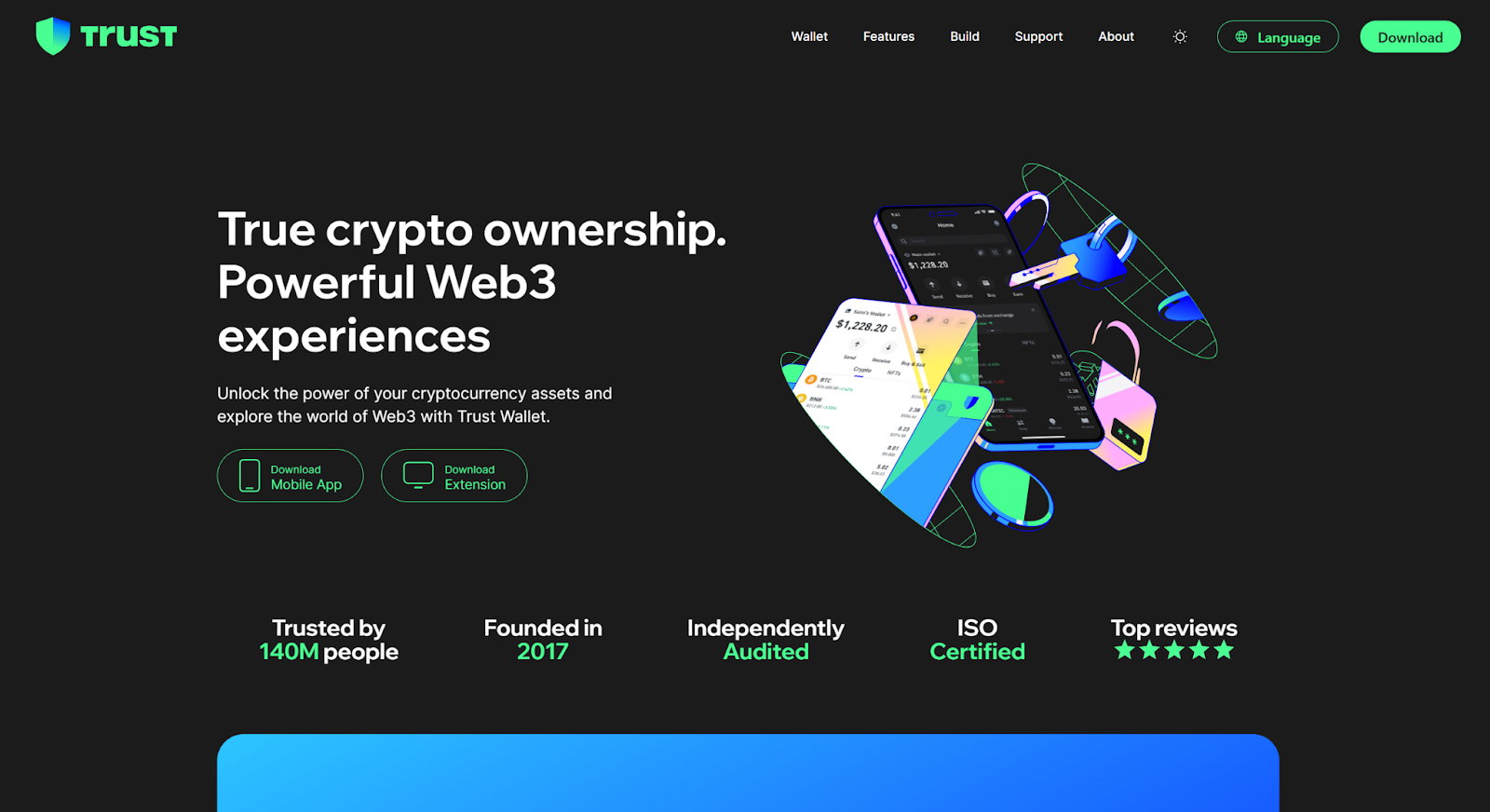
One of Trust Wallet’s most praised features is its simplicity. Whether you’re hungry for a Trust Wallet review before installing or just curious about the design, the wallet’s intuitive interface is evident in every corner. The mobile version provides a seamless experience, ensuring that even on the go, your assets are just a few taps away.
The wallet web version also merits mention, as it offers a responsive layout and fully functional interface that allows users to manage their portfolio, review transactions, and engage with dApps effortlessly. This dual-access approach (mobile and web) significantly enhances its accessibility.
Wallet Type and Security
From a security standpoint, Trust Wallet operates as a non-custodial wallet. What does this mean for the everyday user? Essentially, the private keys are stored on your device, which gives you absolute control — but also demands that you take responsibility for their safety. This design is one of the reasons many regard it as a Trust Wallet safe solution.
- Non-Custodial Nature: No centralized entity directly controls your funds. You are the sole custodian.
- Encryption and Local Storage: All sensitive data, including private keys, is encrypted and stored locally.
- Backup Requirement: Given that it is non-custodial, backing up your wallet is critical. A misplaced device could mean lost assets if the backup isn’t secured.
Backup Scheme
The backup scheme in Trust Wallet is designed to ensure that your funds are always recoverable. Upon setup, the app provides a seed phrase — typically consisting of 12 to 24 words — that acts as the master key to your wallet. It is essential that you:
- Write down your seed phrase on paper.
- Store it in a secure location away from any digital devices.
- Never share it with anyone.
KYC Information
While the essence of decentralized finance is anonymity and self-sovereignty, regulatory compliance sometimes demands Know Your Customer (KYC) protocols. Trust Wallet is unique in this regard:
- Optional KYC: For many transactions, Trust Wallet does not impose KYC. However, certain integrated services may require minimal verification.
- User Privacy: The wallet prides itself on not forcing invasive KYC procedures unless absolutely necessary, aligning with its non-custodial philosophy.
Fees and Commissions
Trust Wallet does not levy its own fees for the exchange or holding of digital assets. However, you should be aware that:
- Network Fees: All blockchain transactions incur fees determined by the network load and are separate from the wallet provider.
- Integrated Service Charges: When using built-in exchanges or third-party services, there may be additional commissions applicable.
Staking Possibilities
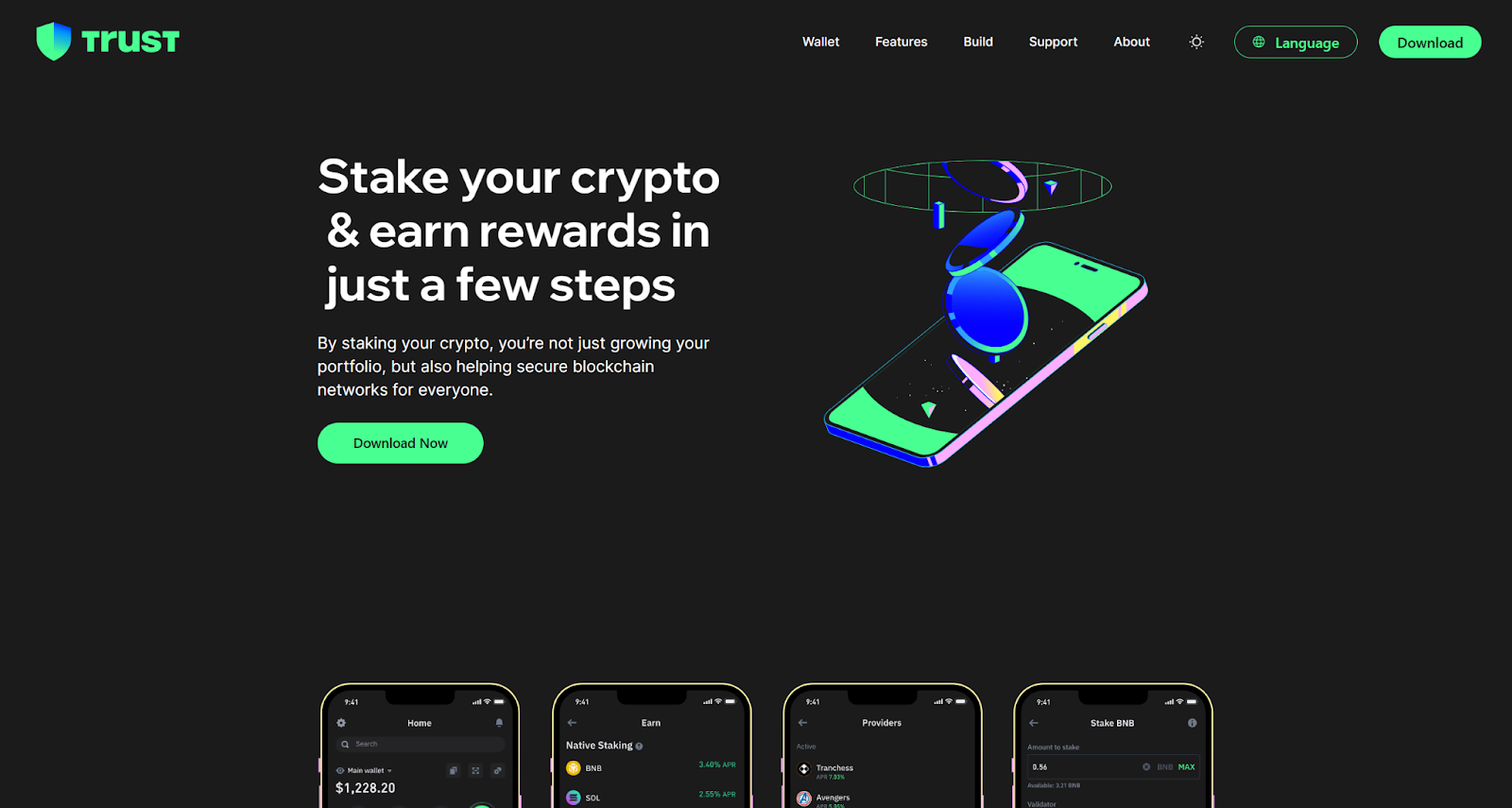
One of Trust Wallet’s standout features is its staking capability. Users can:
- Stake various supported coins directly within the wallet.
- Earn rewards proportional to their stake.
- Participate in network governance (where applicable).
This built-in staking feature transforms the wallet into more than a mere storage tool—it becomes an active part of your crypto earning strategy. Detailed instructions and clear reward metrics make this feature appealing, particularly for those who view their wallet as a trust crypto wallet for long-term benefits.
Rewards and Achievements
Acknowledging user engagement and promoting continued usage, Trust Wallet incorporates a system of rewards and achievements within the app. Some highlights include:
- Referral Bonuses: Introducing new users can often result in bonus rewards.
- Usage Milestones: Unlocking achievements for consistent usage or reaching specific transaction volumes.
- Promotional Campaigns: Periodic rewards that celebrate key community events or launches.
Additional Features
Trust Wallet goes beyond simple storage and transactions. Some of its additional capabilities include:
- dApp Integration: Direct access to decentralized applications through an embedded browser, making it easy to interact with DeFi protocols, games, and NFTs.
- Aggregated News and Insights: Stay informed with in-app news feeds and market data.
- Customizable Interface: Users can tailor the app’s appearance and functionality to better suit their needs.
Support for Networks and Coins
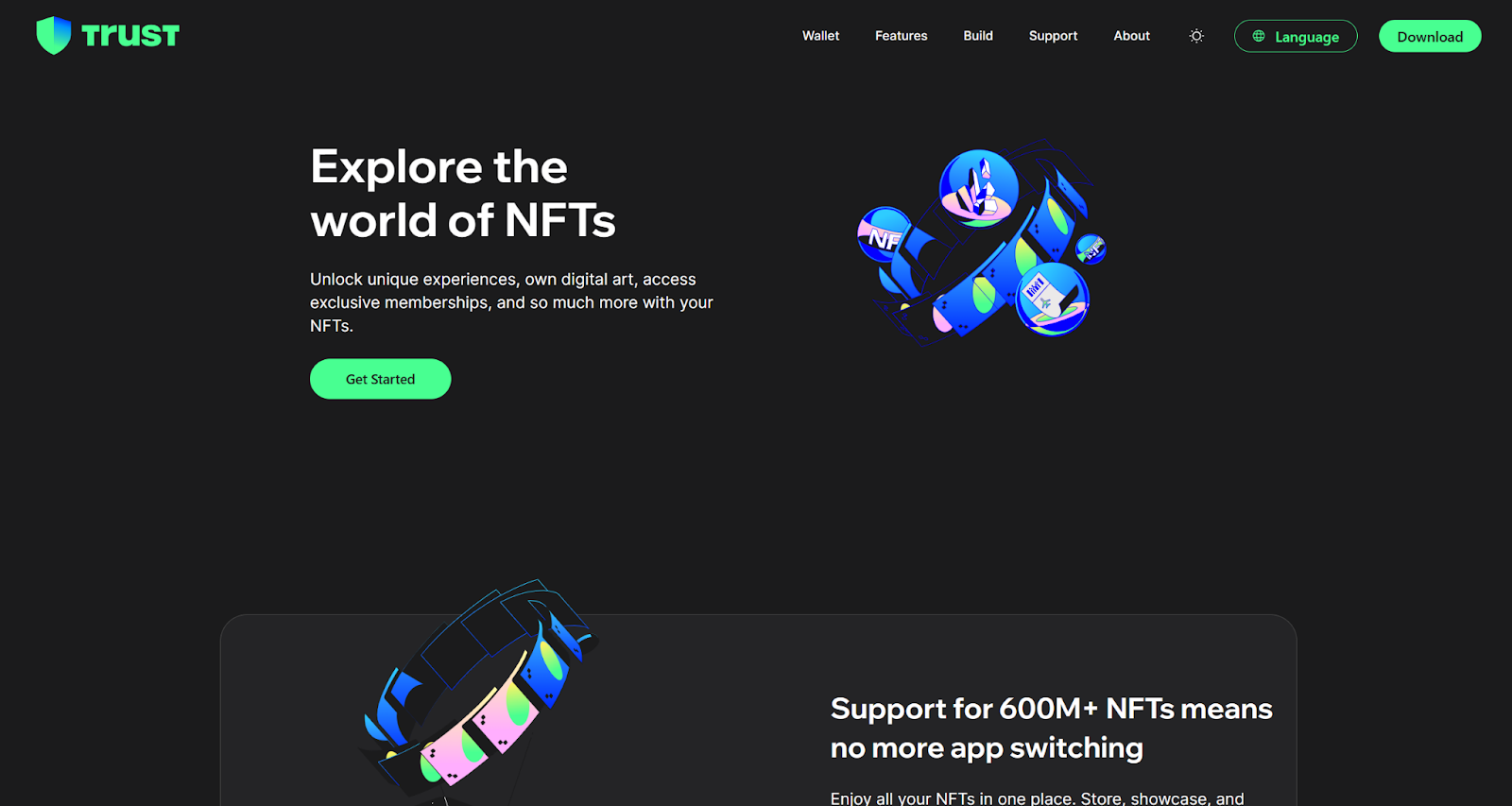
Trust Wallet supports an extensive array of networks and digital assets. It is renowned as a trust bitcoin wallet but also serves as a multi-chain platform. Key features include:
- Multi-Currency Support: Manage Bitcoin, Ethereum, Binance Coin, and over 40 other blockchains within a single interface.
- Token Compatibility: Seamlessly store various tokens (ERC-20, BEP-2, BEP-20, and more).
- NFT Integration: With the explosive growth of non-fungible tokens, Trust Wallet now offers support for managing and viewing NFTs.
Multicurrency Capabilities and Network Support
The wallet’s flexibility is highlighted by its multi-currency functionality:
- Supported Networks: Ethereum, Binance Smart Chain, Bitcoin, Solana, and several other blockchains ensure that users are not limited by network constraints.
- Interoperability: Users can switch between networks effortlessly, making it simpler to take advantage of emerging blockchain technologies.
- NFT and Token Support: With native support for NFTs and a plethora of token standards, the platform adapts to new trends and innovations in the digital asset space.
Interface Overview
The user interface of Trust Wallet truly sets it apart:
- Mobile Experience: Designed primarily for smartphones, the mobile version blends minimalism with functionality. Navigation is straightforward, menu options are well grouped, and critical information (such as balance and recent transactions) is displayed prominently.
- Responsive Design: The responsive nature of the wallet web interface means users can comfortably manage their portfolio on tablets and desktops.
- User Customization: Themes, language preferences, and layout adjustments allow users to personalize their experience, reinforcing the wallet’s commitment to accessibility and ease of use.
Account Creation Guide
Setting up Trust Wallet is a straightforward process. Follow these steps for a secure start:
- Download the App: Available on both iOS and Android. Alternatively, access the wallet web version if you prefer a desktop experience.
- Initiate the Setup: When you open the app, tap on “Create a New Wallet.”
- Backup Your Seed Phrase: A 12-24 word seed phrase will be generated. Write these words down in the given order and store them securely.
- Confirm the Phrase: The app will typically ask you to confirm your seed phrase to ensure you have noted it correctly.
- Set Up Security Features: Choose an app-specific PIN or integrate biometric authentication for an additional layer of security.
- Start Exploring: Once set up, you can add coins, connect to dApps, and explore the wealth of features in your app.
Buying and Selling Coins
Trust Wallet streamlines the process of buying and selling cryptocurrencies:
- Direct Purchase: Through integrated partners, users can purchase assets using traditional payment methods.
- In-App Trading: The wallet supports decentralized exchange features for quick swaps between different coins.
- Market Insights: Integrated tools help users make informed decisions before buying or selling, ensuring transparency with every transaction.
Transferring Coins on and off the Wallet
Sending or receiving funds is made simple:
- User-Friendly Interface: Input the recipient’s address, select the amount, and confirm the transaction in a few quick steps.
- QR Code Scanning: This feature minimizes human error by allowing you to scan the recipient’s address.
- Transaction History: Keep track of all transactions for future reference and audit purposes.
The seamless process supports both domestic and international transfers, bolstering the wallet’s reputation as a reliable trust bitcoin wallet.
In-Wallet Coin Exchange
One of the major conveniences of Trust Wallet is the ability to exchange cryptocurrencies within the wallet itself:
- Integrated Swap Feature: Use the swap function to instantly convert one cryptocurrency to another without leaving the app.
- Real-Time Rate Updates: The exchange feature provides up-to-date market rates, enabling informed decision-making.
- Low Friction Trading: With a few taps, users navigate the in-wallet exchange process, enhancing the overall user experience.
This internal exchange capability supports the narrative for a modern trust bitcoin and crypto wallet that adapts to the evolving needs of its users.
Additional Opportunities and Extra Features
Beyond its primary functions, Trust Wallet continues to innovate:
- Access to dApps: The built-in browser opens doors to decentralized finance (DeFi) platforms, NFT marketplaces, and more.
- Potential for Future Lending/Borrowing: Rumors suggest that future updates may introduce features similar to Guarda Wallet’s loan options, providing users with an expanded suite of financial services.
- Community-Driven Updates: Regular updates based on user feedback ensure that Trust Wallet remains competitive while staying true to its decentralized roots.
These extra features not only add depth to the wallet’s functionality but also create an ecosystem where users can enjoy an integrated approach to managing their digital portfolios.
Conclusion
In summary, this Trust Wallet review illustrates why Trust Wallet remains one of the leading options for cryptocurrency users in 2025. From its robust security measures — earning it the label of a Trust Wallet safe — to its extensive support for multiple blockchains, the wallet stands out as a reliable and user-focused tool for digital asset management. Its non-custodial nature, flexible features, and comprehensive service offerings make it not only a trust crypto wallet but also a truly forward-thinking platform for both beginners and seasoned traders alike. Despite minor challenges such as variable network fees and optional KYC hurdles, Trust Wallet’s ease of use and continual evolution have cemented its standing in the crypto community.
FAQ
What is Trust Wallet?
Trust Wallet is a decentralized, non-custodial cryptocurrency wallet that allows users to manage multiple coins and tokens.
Is Trust Wallet safe to use?
Yes, Trust Wallet is engineered to be Trust Wallet safe due to its non-custodial design, encryption protocols, and local storage of private keys. However, users must securely back up their seed phrases.
How do I set up my account?
The process is simple — download the app or use the wallet web interface, create a new wallet, back up your seed phrase, set up a PIN/biometric security, and you’re ready to go.
Does Trust Wallet require KYC?
Trust Wallet offers optional Trust Wallet KYC for certain integrated services. Basic functionality does not enforce KYC, maintaining the wallet’s decentralized ethos.







